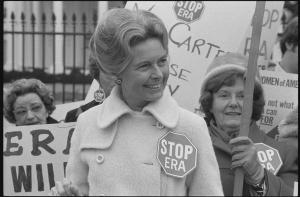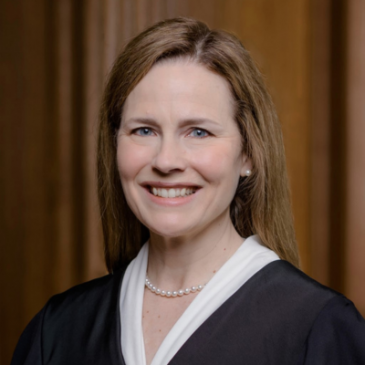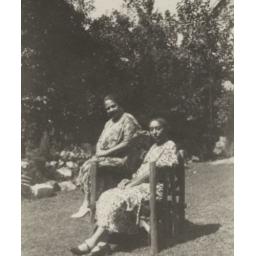Phyllis Schlafly

Phyllis Schlafly, a conservative activist, commentator, and author, led a successful campaign against the ratification of the Equal Rights Amendment in the 1970s. She was an influential figure in conservative American politics and policymaking, arguing against feminism, abortion, and gay rights, and was one of the first to tap into the conservative religious sentiment based on what she termed “family values.” Schlafly’s influence on the Republican Party and American politics reverberates strongly today.
Phyllis McAlpin Stewart was born on August 15, 1924, in St. Louis, Missouri. She was the eldest child of John Bruce Stewart, a machinist and salesman, and Odile Stewart, a teacher and librarian. Schlafly’s father was frequently unemployed during the Great Depression, leading her mother to return to work to help support the family, which also included Schlafly’s younger sister.
Schlafly earned a scholarship to college after graduating first in her class from a Catholic high school. In 1944, she graduated from Washington University and went on to earn a Master’s Degree in government from Radcliffe College at Harvard University in 1945. She worked on an assembly line at a munitions factory during World War II to pay for part of her college tuition.
After college, Schlafly went to work in Washington, D.C. for the conservative think tank American Enterprise Institute and on conservative political campaigns for members of Congress. She married lawyer (John) Fred Schlafly in 1949, and in 1957 the two were the primary authors of an influential paper for the American Bar Association entitled: "Report on Communist Tactics, Strategy, and Objectives." As prominent members of the anti-communist movement, the Schlaflys’ paper was considered a driver of grassroots anticommunist sentiment and was highly influential for Catholics who linked their faith to patriotism and conservative beliefs.
Phyllis Schlafly came to national prominence with the 1964, self-published book, A Choice Not an Echo, written in support of the conservative politician Barry Goldwater. In it, Schlafly criticized competing Republican Nelson Rockefeller and fellow “Rockefeller Republicans” as corrupt, globalist, northeastern elites. She quickly became an outspoken voice within the conservative movement, regularly attending and speaking at Republican conventions, and running for Congress (though she was never elected to public office). In 1972, she founded the Eagle Forum, a conservative political interest group, which she oversaw until her death in 2016.
Schlafly and Fred had six children. She often referred to herself as a “homemaker” and “volunteer” and cited “mother” as her primary occupation. Though she claimed to never have held a paying job after marriage, many of her political opponents considered it ironic that she spoke out against feminist causes and working women while she pursued an active career. This career included a law degree from the Washington University in St. Louis Law School in 1978.
Schlafly is best known for her successful fight against the Equal Rights Amendment (ERA) in the 1970s. Her campaign was called “STOP ERA.” “STOP” stood for “Stop Taking Our Privileges,” and included delivering homemade bread to members of Congress as a lobbying tactic. Schlafly argued the ERA would take away what she thought of as privileges women currently got, such as the exemption from mandatory military service (with the Vietnam War draft fresh in the nation’s mind, this was no abstract idea), the “dependent wife” clause granting widows Social Security benefits, and the preference in custody battles given to mothers.
Her arguments resonated with some Americans, and she helped keep her relatively small anti-ERA coalition (estimated at about 20,000 people) tightly focused on defeating the amendment as feminist activists became increasingly divided over issues such as abortion and gay rights. Schlafly helped make feminism a polarizing political issue, originating the idea of “family values” as a partisan divide. She and her supporters opposed politicians based on their support for abortion, gay marriage, and other issues Schlafly and her associates considered in opposition to the nuclear Christian family.
In the 1980s, she again fought against the ERA after a majority of Senators voted to re-introduce it. In 1983, Schlafly famously sent those 53 Senators homemade quiches accompanied by a note that said, “Real Men Do Not Draft Women;” the tactic was a play on a recently published book, Real Men Don’t Eat Quiche. She helped ensure that the Republican platform included anti-abortion stances and was credited by Republican presidents such as Ronald Reagan for her effective conservative activism. Even after it was revealed that her eldest son was gay, she did not deviate from her anti-gay marriage stance and claimed her son agreed with this stance.
Schlafly remained active and influential in conservative politics until her death on September 5, 2016. She published twenty-six books as well as a weekly syndicated column. In addition to remaining firmly anti-feminist, she spoke and wrote passionately against the United Nations, globalization, arms control agreements, free trade, and immigration.
Robert Patrick, “Conservative Activist Phyllis Schlafly Dies,” St. Louis Post-Dispatch, September 6, 2016. Accessed June 10, 2021. https://www.stltoday.com/news/local/govt-and-politics/conservative-activist-phyllis-schlafly-dies/article_08b63543-2a9b-5e96-bbc0-91367561fdf4.html
Ginia Bellafonte, “A Feminine Mystique All Her Own,” New York Times, March 30, 2006. Accessed June 11, 2021. https://www.nytimes.com/2006/03/30/garden/a-feminine-mystique-all-her-own.html
Caryn James, “A Smart Tale of an Anti-Feminist Icon,” BBC Culture, April 2, 2020. Accessed June 11, 2021. https://www.bbc.com/culture/article/20200402-mrs-america-review-a-smart-tale-of-an-anti-feminist-icon?referer=https%3A%2F%2Fen.wikipedia.org%2F
“Anti-ERA Activist Wins Again,” TIME magazine, July 3, 1978 (archived). Accessed June 12, 2021. https://web.archive.org/web/20110121004145/http://www.time.com/time/magazine/article/0%2C9171%2C945990%2C00.html
Paula Schwed, “Quiche lobbed as ERA battle resumes,” UPI, January 26, 1983, https://www.upi.com/Archives/1983/01/26/Quiche-lobbed-as-ERA-battle-resumes/2598412405200/
Lois Romano, “Let Them Eat Quiche,” The Washington Post, January 26, 1983, https://www.washingtonpost.com/archive/lifestyle/1983/01/26/let-them-eat-quiche/de8fb8cb-5b8e-4f6f-95a5-e12447171c07/
Eagle Forum biography of Phyllis Schlafly: https://mrsamerica.org/
MLA – Johnson, Arbora. “Phyllis Schlafly.” National Women’s History Museum, 2022. Date accessed.
Chicago – Johnson, Arbora. “Phyllis Schlafly.” National Women’s History Museum. 2022. www.womenshistory.org/education-resources/biographies/phyllis-schlafly
Image Source: Wikimedia Commons
Marjorie J. Spruill, Divided We Stand: The Battle Over Women's Rights and Family Values That Polarized American Politics (London: Bloomsbury, 2017).
Carol Felsenthal, The Sweetheart of the Silent Majority: The Biography of Phyllis Schlafly (New York: Doubleday & Co., 1981).
Select Books by Schlafly:
- A Choice Not an Echo: Updated and Expanded 50th Anniversary Edition (Regnery Publishing, 2014)
- Feminist Fantasies, foreword by Ann Coulter (Spence Publishing Company, 2003)
- How the Republican Party Became Pro-Life (Dunrobin Publishing, 2016)





